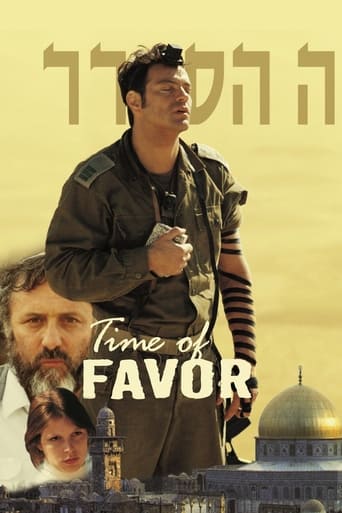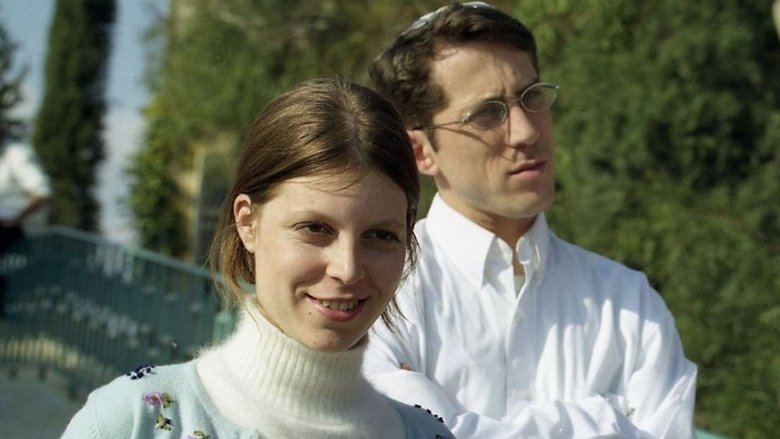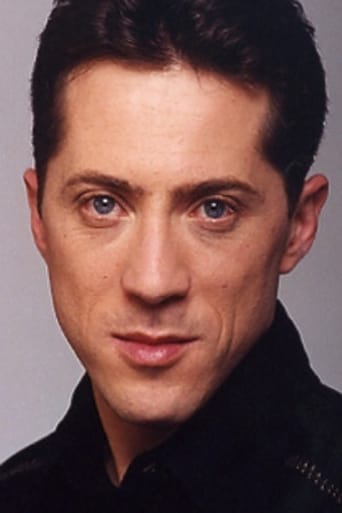

Time of Favor (2000)
Is today's fanaticism tomorrow's policy? In a West Bank settlement, Rabbi Meltzer has a grand design: he's building a movement "to pray at the Temple Mount." His yeshiva has scholars, and the settlement is getting its own military company to be commanded by Menachem, a disciple of the rabbi. He also wants his daughter, Michal, to marry Pini, the yeshiva's best scholar. Michal has no interest in Pini, but she is attracted to Menachem. When she rebuffs Pini, he hatches a bold and secret plan. Is jealousy the motivation or something else? Meanwhile, the army and Moussad are closely watching the rabbi's activities and Menachem's military training. Who is trustworthy?
Watch Trailer
Cast


Reviews
Perhaps the dominant theme in Joseph Cedar's Time of Favor is the need for doubt, i.e., the folly, often fatal, of absolute certainty of one's righteousness.In Michal's first conversation with Menachem she notes how the Israeli men see everything in black and white, untroubled by nuances. He takes pride in quickly overcoming doubts, which serves him well as a military commander but troubles his attraction to her. Their lyrical shadowplay shows them too doubtful about their feelings to touch but open to intertwine their shadows. In a close later scene the Mossad men discuss their concern over Rabbi Meltzer's lack of doubt.In both closed male systems, the IDF and Rabbi Meltzer's militant yeshiva, the men are too absolutely certain of their righteousness to achieve justice. Indeed Meltzer insists that in war one needs to forget one's family, lover, emotions, to succeed as warrior. When the soldiers target Menachem in the tunnels at the end, as in his violent interrogation earlier, their unfounded certainty about his guilt threatens a profound injustice.When Menachem declares that Rabbi Meltzer has stolen his soul he realizes that Meltzer's domination threatens Menachem's and Michal's happiness, not to mention the general peace. Where her rejected suitor, the scholar Pini, launches a suicide bombing mission to impress the rabbi and Michal, Menachem resolves to leave the army and his command of the rabbi's military unit. He wants to live a more sensible, human life. As Michal notes, the rabbi's blind vision cost her mother's life. If a terrorist were to kill Michel, Meltzer would dismiss it as the pain on which Israel is built. Where Pini loves Michal for the Rabbi Meltzer he sees in her, Menachem's love for her exposes his mentor's dangerous folly. Michal has her father's strong will and strong sense of self but is mercifully free of his arrogance.Here's the film's crowning paradox. It's about the development of a suicide bomber in a West Bank settlement, targeting the Temple Mount, but it has nothing to do with the Palestinians. Cedar's point is that Jewish religious fanaticism and messianic fervour are as dangerous and irrational as the Palestinians'. Hence Menachem's rousing speech to his troops: in war you don't fight the enemy, you fight yourself. As it happens, that's the original meaning of the Islamic word jihad. Menachem's term to fire up his troops' dedication to Jehovah also parallels the Arabs' bloody service to Allah. To the secular Mookie, it's like a stick of dynamite up the soldier's ass. That's religious fervour for you. It fires you up — fatally and alone.Cedar frequently parallels scenes to pointed effect. In one, he cuts from Michal's solitary sabbath devotion to the barracks men rowdily and brutishly celebrating the eve. Her modest reverence contrasts to their loutish service. Among the men Menachem sits quietly contemplative, as if already decided he must choose her life over theirs. For more see www.yacowar.blogspot.com.
Meltzer is a Rabbi in West Gaza. He teaches fanaticism. He has two important men for his religious purposes. Menachem is the leader of his army and Pini is his best student who will be his successor. Meltzers daughter brings these three characters confronting each other as she falls for the right contender. This film is extremely assuming. It assumes you know everything about settlers and their politics. It seems a lot is also lost in translation. Still this film works for me. It talks about a fundamental question what's more important men or god? At least thats my interpretation of 'Crusade' and 'Jihad'. I like the sequence where Menachem is arrested and questioned. There are lots of things in the film I could not understand or relate to but still it was good. I think the story is good but it was not presented in a comprehending manner. My interpretation of the film is that people, if given power, use it for their individual purposes. So power should not be consolidated in one hand. The 'two contenders', a religious fanatic and a trigger easy army man, was also a very interesting conflict. Film also raises the question how difficult and important it is to separate violence from religion. Character of Michal is good. She only brings these two characters in conflict. Quite nice check it out. 8/10
When I saw the DVD of this at Blockbuster, I thought it would be interesting for I am interested in the West Bank in Israel and the people who live there (called "settlers" because they live in so called "Arab" land, which is really Jewish land). It is about a rabbi who runs his own Israeli military unit in the West Bank. The rabbi's favorite Hebrew student is in love with the rabbi's daughter, while the daughter is really in love with a dashing young military unit leader. The film is basically the soldiers hanging around, doing military training, while the rabbi's student tries to get with his daughter while the daughter is trying to get with the unit leader. It is a drama-less love triangle until the end, when they find that several large quantities of explosives have been stolen from the military depot and it turns out that the rabbi's student is going to blow up the Dome of the Rock mosque in Jerusalem so that the Jewish Temple can be rebuilt there (the 3,000 year-old temple destroyed by the Romans). So basically, the end comes and the soldiers find the student underneath the mosque and shoot him before he can detonate the explosives. This is like many other European and Middle Eastern films, it has more to do with scenery and art than with actual drama. It won Best Picture at the Israeli National Film Awards and I can believe it, but it is generally boring unless you are absolutely crazy about love-triangle films. See this if you like foreign films, but if you are looking for a true drama, see something else. This is a good film but it feels like something is missing
"Time of Favor" seems to be an earnest attempt to tell a somewhat mundane tale, as films go, of a religious military man who has to weigh matters of faith with conscience, love with duty, sacrifice with fulfillment, etc. - nothing particularly new. The film comes off like a low budget indie with obvious cost cutting throughout and muddles the core issues with too much busy work. Somewhat esoteric, Israelis would better empathize with the circumstances and probably glean more from the cultural subtleties. A gentile who's never been to Israel, I found the film to be marginally interesting, minimally entertaining, and anticlimactic. (C)Note - The cover of the DVD I rented bore a quote from the Village Voice calling this film "exotic"..."erotic"...."highly atmospheric". I wonder if they saw the same movie. The one I watched was only exotic because it was a foreign film from Israel, had no sex (one kiss), and the atmospherics were ordinary at best. Moral - beware the box cover B.S.




